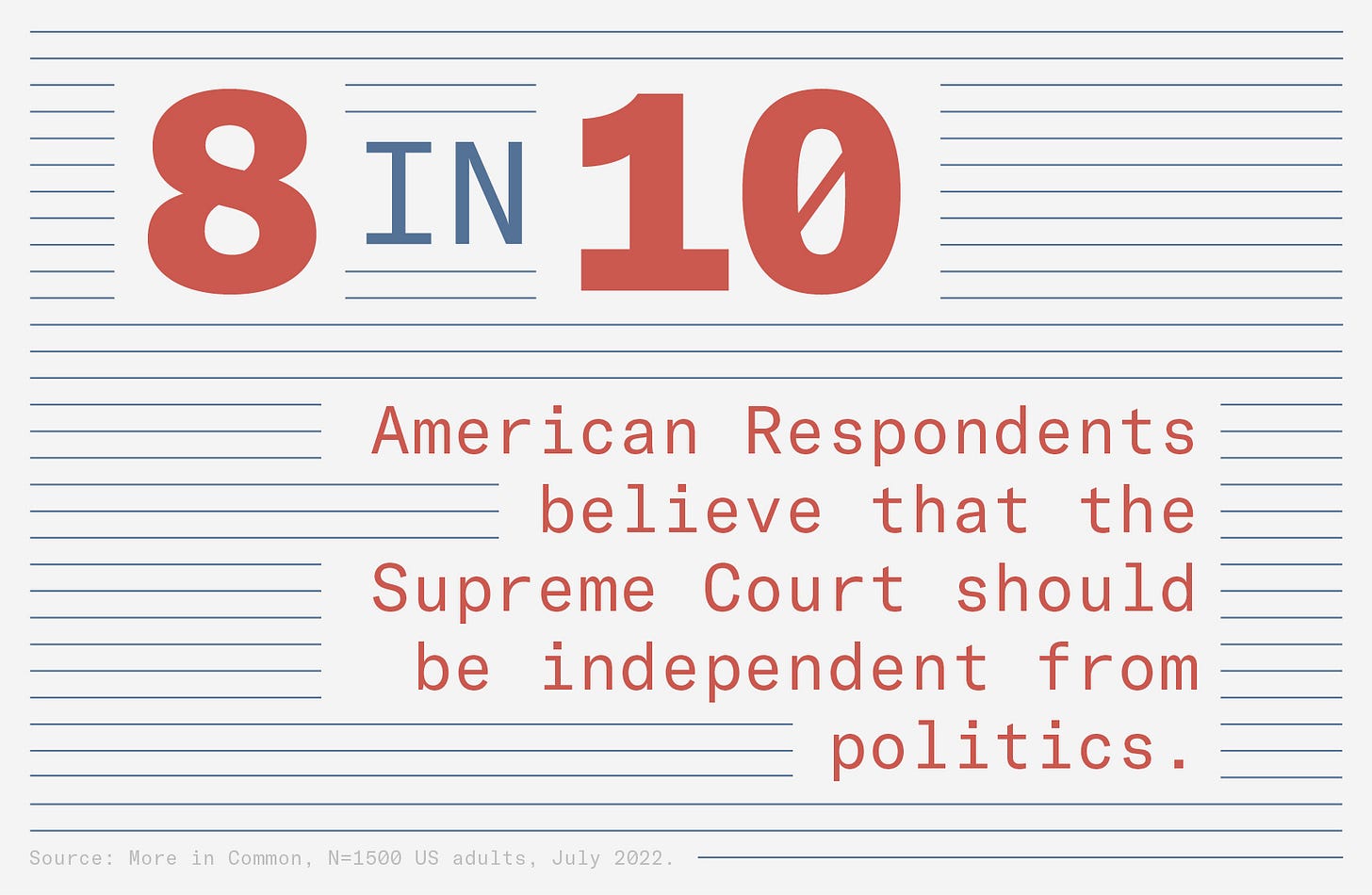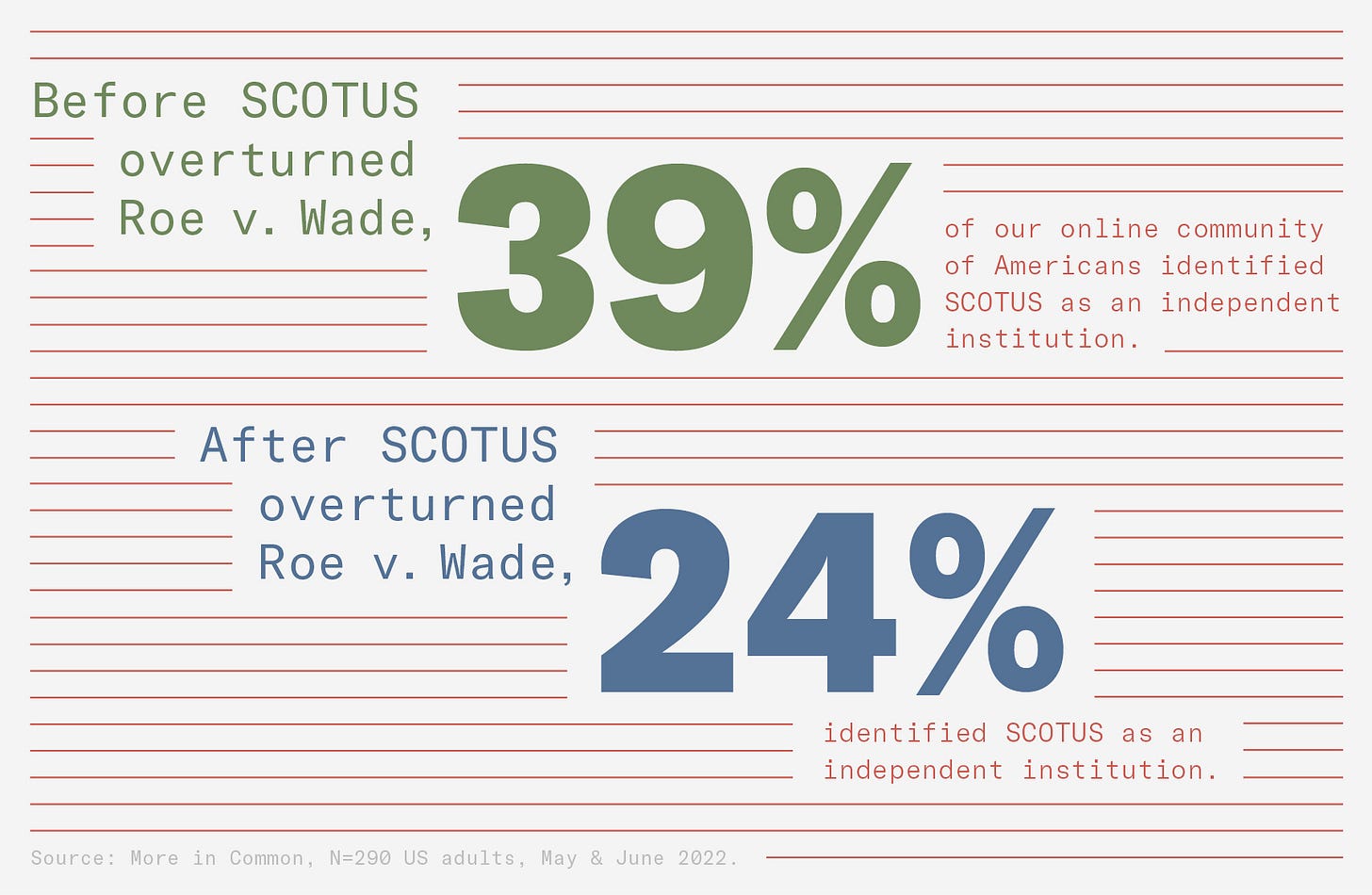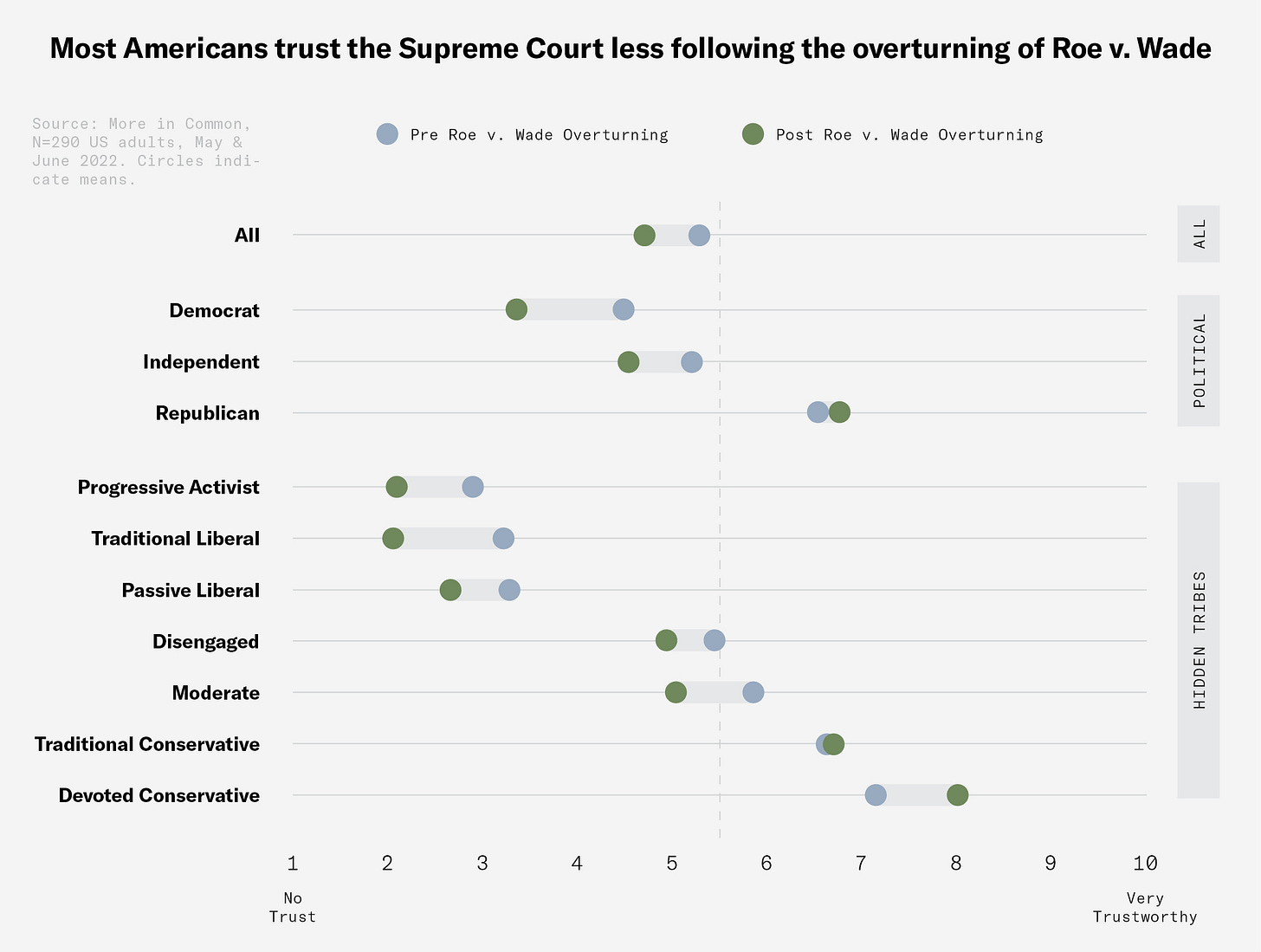Trust in SCOTUS in the wake of Roe v. Wade
Summary: New research suggests that the overturning of Roe v. Wade damaged the Exhausted Majority’s trust in the Supreme Court.
The Supreme Court was designed to serve as an independent and apolitical check on the branches held by elected officials. Yet, in recent years, contentious confirmation hearings and an increase in polarized decisions have embroiled the Supreme Court in partisan dispute, generating substantial public skepticism about its true independence.
Ongoing research by More in Common highlights the public’s increasing perception of the Court’s politicization. In a 2020 survey, More in Common found that 43% of Americans believed Justices made decisions based on political ideology and only 35% believed decisions were made on an impartial understanding of the law.
In April 2022, More in Common asked a different group of Americans about their perceptions of the Court. Similar to the 2020 results, only 39% believed the Court was acting independently. When this 2022 group of Americans was asked this question again after the Court overturned Roe v. Wade, however, that percentage fell 15 points, to 24%.
Americans agree that the Supreme Court should be separate from politics
However, the belief that the Supreme Court is separate from politics dropped following the overturning of Roe
“Yes, the Supreme Court should be an independent institution—the founding fathers intentionally designed it that way, where America has 3 SEPARATE branches of government. However, that is not the case now. The overturning of Roe v. Wade was clearly a political/religious decision.”
💬 Mildred, Age 45-54, White female, Disengaged, Illinois
This has important implications for trust
After the overturning of Roe v. Wade, trust in SCOTUS decreased across all Hidden Tribe segments, except for Traditional Conservatives, who were unchanged, and Devoted Conservatives, who reported more trust.
On a scale between 1 (no trust) and 10 (very trustworthy), trust in SCOTUS among the Exhausted Majority (Traditional and Passive Liberals, Disengaged, and Moderates) dropped, on average, from 5.0 to 4.2. The fact that trust decreased for the Exhausted Majority shows how significant the decision was for the public’s view of the Court: it affected even those who typically do not follow politics or hold partisan views.
Furthermore, in a large national survey conducted after Roe was overturned, Americans who believed SCOTUS should be an independent institution but did not think it was acting like one were more likely to consider the Supreme Court untrustworthy. This association might help explain why trust in the Court increased for Devoted Conservatives and decreased for mostly everyone else: Devoted Conservatives likely viewed the Court as acting independently.
“The right to an abortion is not in the constitution, so overruling Roe v. Wade was the right decision.”
💬 Donna, Age 25-34, White female, Devoted Conservative, Kentucky
“The timing of the decision seems like it’s more political than a legal case to set a precedent. It’s basically rolling back progress and rulings that came before rather than advancing justice!”
💬 Theda, Age 35-44, White female, Passive Liberal, Oregon
Looking Ahead
Trust in American institutions, on average, is at the lowest it has been in decades. Research shows, however, that people trust institutions more when they play an active role within them. In order to rebuild trust in public institutions generally, we need to reengage disaffected Americans in institutional activities via direct participation (voting, volunteering, community organizing, etc.)
Restoring integrity in the Supreme Court specifically, however, will require a different path because Americans cannot engage directly with the Court. Fostering trust will require the Court to demonstrate that it is deciding cases based off impartial understanding of the law. Highlighting stories of Supreme Court Justices speaking publicly about how they work together and respect one another can help but is likely not the entire solution. Our results suggest that perceptions that individual rulings are made in a nonpartisan way must increase for Americans to regrow their trust in this essential institution. If the rulings continue to fall along political lines, there is a risk that many Americans, including those in the Exhausted Majority, will see SCOTUS only as a tool for politically driven agendas.






